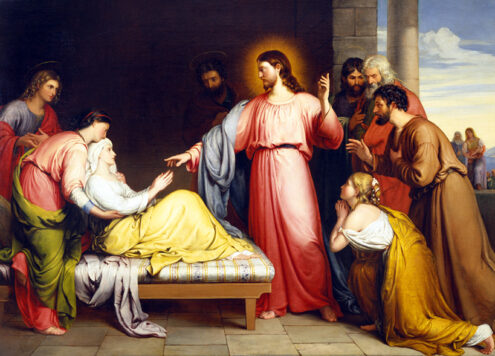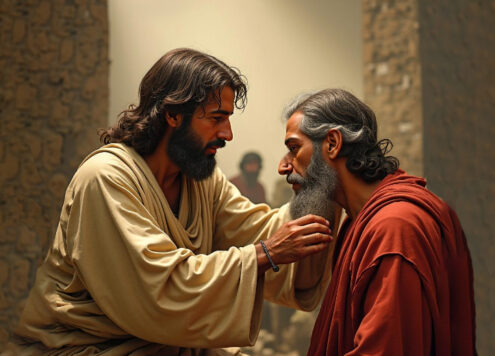The observance of Father’s Day goes back a long way, as far back as the fourteenth century.
It first began on March 19, the feast of St. Joseph, the foster father of Jesus. The purpose was to honor the contribution of all men, single and married, to the build-up and protection of families. This celebration was brought by the Spanish and Portuguese to Latin America. It is still observed on March 19 in many Latin American countries, and in several European countries, although many countries in the Americas and Europe have now adopted the U. S. date which is the third Sunday of June.
In the United States of America, Father’s Day is of relatively recent origin. There were many failed attempts in the U.S. at establishing Father’s Day in the early part of the twentieth century. The most successful attempt was by a Spokane, Washington, woman who had heard a sermon in Church on Mother’s day in 1919 praising the virtues of motherhood. Her thoughts wandered to her father (a civil war veteran) who single-handedly raised her and her five brothers after the death of her mother. She quickly approached the minister of her Church (Old Centenary Presbyterian Church) with the idea of a special day to honor fathers and with the zealous support of the mayor, the third Sunday in June was set aside as a day to honor fathers. In 1966, President Lyndon B. Johnson issued the first presidential proclamation designating the third Sunday in June as Father’s Day. Six years later, Father’s Day was made a permanent national holiday in the U.S. when President Richard Nixon signed it into law in 1972.
The spirit of fatherhood encompasses many things. George Washington is called the father of the country because of the sacrifices he made to give birth to the United States of America. We also know that Priests, Ministers, Rabbis, Imams, and leaders of religious denominations are recognized as spiritual fathers because of the spiritual and moral direction they exercise in the communities of faith to which they belong and for which they are responsible.
Today’s tribute to fatherhood will focus, mainly, on the remarkable blessing and vocation of those fathers who have given us birth and provided us with sustenance and guidance during different stages of our lives. There are other men in our lives who have been father-figures to us such as teachers, coaches, mentors, and uncles. They too deserve to be remembered today.
A father of a family has an extraordinary vocation, not only to provide material support for his family, but to resolve many tensions and trials in the home in order to pave the way for good relationships. The material support of a father for today’s family may not rest entirely upon his shoulders when both parents are working. His spiritual and moral character, however, continues to be essential for it is the key to supporting the family entrusted to his care, in good times, and in bad.
The greatest contribution a father can make is, surely, his love for his family. A father must be willing to communicate this love by rising above self-seeking to care for his wife and his children, even when it hurts. A study conducted by Cornell University found that the average American father spends only 37.7 minutes a day with his children. Spending time with the the family tells them that they are more important than your job or anything else in your life.
It takes enormous dedication for a father to put food on the family table every day, to keep the children healthy and safe, to affirm a child and build up his or her self-esteem, to overlook the inexperience of childhood, to forgive and respect freedom, to keep on trusting without giving in to anger or retaliation, to guide and discipline by example. These are the wonderful qualities of a father, fashioned in the image of God.
How could we not be most grateful for the remarkable love of fathers, often unseen and self-effacing, in our lives? This love comes to us, unasked for and debt- free.
It is a gift.
On this Father’s Day, let us keep in mind the fathers who played such an important part in our lives, living or dead, and remember them in our prayers.
—Fr. Hugh Duffy











3 Comments
Maria
God bless my beloved father Hugh Montgomery… And all fathers, including Fr. Duffy and all priests!
Hugh Duffy
Your dear father, Hugh, is always in my mind, Maria. I’m remember him at mass tomorrow.
Rachel
Happy Father’s Day to you too Father,
Thank you for existing….May God the Father bless you abundantly.
Together in Christ and with Mary, our Mother.
Rachel & Robert – Canadians & Okeechobee Florida